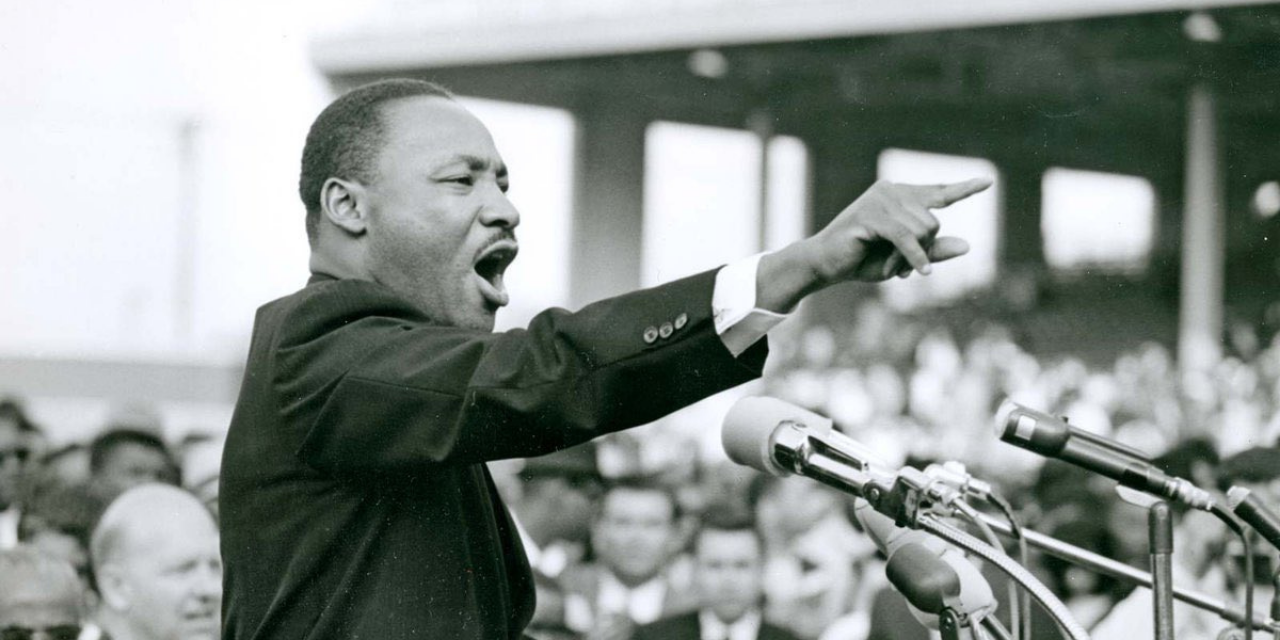It was 93 years ago this Saturday (January 15th) when Michael King – who would eventually become known as Dr. Martin Luther King, Jr. – was born inside a modest 2-story home at 501 Auburn Avenue in Atlanta, Georgia. It was a Tuesday.
Located just one block east of the historic Ebenezer Baptist Church where his father (the son of a sharecropper) served as pastor, “Michael” became “Martin Luther” after the elder King returned from a European tour. The trip included time in Germany, where Pastor King became enamored and impressed with the bold and principled leadership of the Protestant reformer Martin Luther. At the time of the journey in 1934, Adolph Hitler was rising, and the prospect of someone boldly and courageously opposing an oppressive dictatorship was likely appealing to the impressionable minister.
According to Taylor Branch, author of a book detailing the rise of the younger Dr. King in the ‘50s and ‘60s, the name change was full of biblical significance.
“Jacob became Israel, Saul of Tarsus became Paul, Simon became Peter. For Mike King, who had come to Atlanta smelling like a mule, the switch to Martin Luther King caught the feeling of his leap to the stars.”
Dr. King’s meteoric rise and later tragic end in 1968 at the hand of an assassin’s bullet in Memphis, is a story most of us learned growing up. First designated a federal holiday in 1986, President Reagan marked the first national celebration of Martin Luther King Jr.’s birthday with an address to schoolchildren.
”Ultimately,” Mr. Reagan said, ”the great lesson of Martin Luther King Jr.’s life was this: He was a great man who wrested justice from the heart of a great country – and he succeeded because that great country had a heart to be seized.”
One of the challenges of longstanding holidays is that they become little more than three-day weekends. Nearly 36 years since the first federal commemoration, how can we remember and celebrate the legacy of Dr. King?
At the outset, it’s okay to acknowledge that controversy nevertheless accompanied Martin Luther King Jr.’s consequential life. This tension is not unprecedented given the imperfections and sins of men and women. Although a renowned Christian minister, recently declassified FBI surveillance tapes suggest Dr. King had been unfaithful in his marriage – and on numerous occasions.
There is no way to reconcile and excuse infidelity. To defile and violate one’s marriage vows is a tragic turn with far-reaching moral, ethical and spiritual implications. At the same time, as Christians, we can still consider the significant contributions Martin Luther King Jr. made — and even continue asking ourselves what lessons we might learn from them.
If so, how might Christians recognize and commemorate the 93rd birthday of Dr. King?
Here are a few suggestions:
Read “A Letter from Birmingham Jail” – Imprisoned for his role in a non-violent protest on April 12, 1963, Dr. King’s thoughts have become an inspirational and modern-day treatise on the issue of inequality and the broader, immoral attacks on what is right. “Injustice anywhere is a threat to justice everywhere,” he wrote. “We are caught in an inescapable network of mutuality, tied in a single garment of destiny. Whatever affects one directly, affects all indirectly.”
Watch the “I Have a Dream” speech – Delivered on the steps of the Lincoln Memorial on August 28, 1963, the civil rights legend reportedly ad-libbed the most memorable portions of the address, stating on that hot summer day: “I have a dream that my four little children will one day live in a nation where they will not be judged by the color of their skin but by the content of their character.”
Resist and reject the misappropriation of “Critical Race Theory” to Dr. King – CRT is a Marxist movement that rejects the fundamental beliefs of the Baptist minister – that equal opportunity is possible. Some of the more radical proponents of CRT have even tried to cancel out and diminish Martin Luther King’s legacy as ineffectual and useless. While Dr. King worked towards a principle-based, unified society, CRT aims to divide and demagogue.
Resist Racism by Living out the Gospel of Jesus Christ: The Bible makes clear that all men and women are created in the image of God (Genesis 1:27). Although we may hail from different races, our identity as believers is in Christ and not the color of our skin (2 Cor. 5:17).
Legends tend to grow larger with the passage of time, as distance adds depth and historical perspective provides a certain heft to a person’s record and reach. As the nation pauses to remember Dr. Martin Luther King Jr., may we do so with soberness and gratefulness – for the contributions he made and for the people he influenced during his ministry.
Photo from Twitter.






